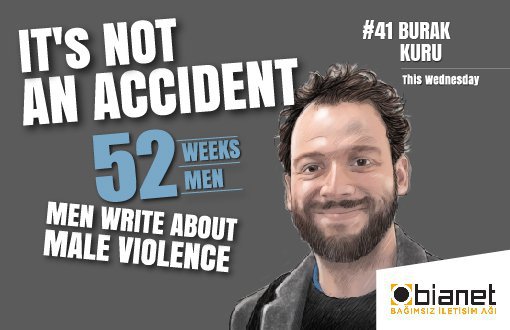Click to read the article in Turkish / Kurdish
Even though it spends all of its energy on soccer, the sports in Turkey achieves a great majority of its notable achievements in branches other than soccer, and most of these achievements come via sportswomen.
Nevertheless, the "reflection" of these achievements in the field, in other words, the response these achievements receive from the sports press is not "reputable". Just like other women who do not engage in sports but appear on those pages, sportswomen are also subjected to inappropriate behaviors or male violence, which is the subject of this article series.
Let us go to the very beginning, to the period when soccer had just begun to thrive, and start with a caricature from the sports press, which at the time was discussing whether women should play soccer or not. On May 28, 1929, on Akşam daily newspaper, there was a caricature of a male and a female soccer player, who engaged in the following dialogue:
Man: "If you will excuse me, missy, I would like to present you with a pass."
Woman: "Hold on a second! Let me put on my make-up, then I will shoot the ball." [1]
Now, let me come to the 50s and quote from Tuğrul Eryılmaz's article in this series on "male violence": [2]
"This state of affairs, which we can describe as harassment, of course continued at Karşıyaka High School and Karşıyaka Erdem College where I attended later. It did not change but the level of harassment increased significantly. There are cliché names given to boys who calmly walk around or don't play soccer: 'Girl Ahmet, Niminy-Piminy Mustafa...' Let me add right away: even though I had no interest in soccer, I managed to become a goalkeeper—or at least I thought I did—for fear of the nicknames they would give me."
Now, I am relaying a testimony from the 90s:
One day, while preparing the sports pages of an important newspaper of the time, people in the newsroom start talking about a photograph of Eczacıbaşı Women's Volleyball Team players having fun on the beach.
As the person working on the page is thinking aloud, "How shall I caption this photograph?", the jokes begin. After a while, it gets out of hand, "What shall I write, 'The b*****s are sunbathing'?", he asks and does not leave it merely as a question but reflects it on the page.
The photograph, which manages to pass all processes of examination, goes into print with the caption, "B*****s are sunbathing". They realize the mistake when the newspapers are being printed; however, some thousands of copies have already been printed and distributed like that.
The examples are unending. A news article from the year 1993. The introduction reads as follows: "The English are trying to cover up the success achieved by Galatasaray in the soccer field with tricks played on the table. The executives of Manchester United, which was eliminated in the Champions League, are claiming "the Turkish police beat our football players" and applying to the UEFA with the demand for a rematch."
OK, nice.
But, why is the headline of this news "Sons of B*****s!"?
In those years, the sports fans were again messing with the wives of soccer players. It was getting steadily worse with posters of players' wives opened in the bleachers, the fans cheering in a profane, abusive language, and chanting slogans about the wives or daughters of the soccer coaches.
We are now coming to the 2000s. In the field of athletics, where the achievements of Turkey are quite limited, Elvan Abeylegesse achieves a success that makes everyone happy.
While the athlete, who just broke the 5000 meters world record at the Golden League meeting in Bergen, is making a victory lap with the Turkish flag in her hand, an editor who is working in a so-called sports newspaper—actually a soccer newspaper—passes this news on to the editorial department suggesting that it can make the headlines.
The editorial department at first welcomes this idea, but then does not deem the photograph of this athlete, whom they have only now heard about, "attractive" enough to increase the paper's circulation and decide to give little coverage to this news.
This is the situation in Turkey but of course it is not very promising across the world, either.
A single example is an important indicator of how women are viewed in the sports field. Andy Sidaris is an American television director who introduced the phrase "Honey Shot" into the literature due to the angles that he chose while directing the broadcasts of sports competitions. [3] It means the following: In the broadcasts directed by Sidaris, the attractive women in the bleachers and cheerleaders are shot close-up and presented to the television audience. This attitude "introduced" to sports broadcasting in the 1970s is, of course, still very much in practice today.
Coming back to present day, sexist comments continue to be made but thanks to the good aspect of social media, these comments can be countered by the reaction of the public.
However, it is difficult to say that it is on the decline.
The sports press, which is regarded as one of the least reputable branches of the press when it comes to certain issues, acts devoid of empathy and on the basis that the vast majority of its audience is men, and fills its pages with masculine, sexist expressions which reflect the society at large...
And we are face to face with these questions: Why can't such a horrible environment get its act together? Why can't the sports press, which is one of the most unbalanced branches of the press in terms of the gender ratio of workers at newspapers, turn into a field where women workers can have a place? Why is the number of women, who work in the preparation of newspapers, in the press tribunes or in the sports fields as photojournalists, on the decline?
Let us refer to two articles featured in this "male violence" article series. If we read a part of Tanıl Bora's article together with that of Bağış Erten, things will fall into place.
Tanıl Bora: "According to evolutionary psychologists, historical anthropologists and whatnot, the aptitude towards violence and aggression increases in all mammalian communities that consist of males. During the colonization of western America, for instance, homicides decreased with the arrival of women, as the women population grew. Being man-to-man may act as an incitement to let oneself go, be impulsive, run rampant. Customarily, man-to-man conversations among teenagers tend to turn into a feast of recklessness. With an appetite to appease the hunger of the times spent in the company of women and girls, as it were..." [4]
Bağış Erten: "Just think about the 'mob' that fills the bleachers today, always tending towards violence, in a mood to lynch someone when they come together, and unable to speak without using foul language. They are the very part of this culture of becoming man. A mass which does not get in contact with women, socializes only through sports, hangs out only with those who resemble themselves, and hates everything that is different. Those who cannot speak by themselves, but think that bullying with cheers is a show of 'character'... And add to them the adolescents who have and have not grown-up, those who simply cannot leave childhood behind, who attribute a meaning to that adolescent inside them, who think that soccer is their 'private' thing and define the bleachers as their legitimate sphere of machismo. Add to that the constantly recurring talk of the proverbial 'manhood'." [5]
Lastly, let me tell you about an argument which started on the sports page of Radikal newspaper on June 9, 2012 and ended in court on May 28, 2013.
Uğur Vardan, who was the Chief Editor of the Sports Department of Radikal newspaper at the time, wrote an article of criticism about a sports newspaper called AMK that would begin to be published that very day and asked in its title, "Did you search a lot to find this name?" [6]
"Good luck with your new newspaper; today, a fresh step is being taken in the name of sports press and a brand-new newspaper is meeting its readers. However, its name is an utter catastrophe: AMK. [English equivalent of "F*** You", literally means "f*** your vagina"] Its expansion is 'Open, Brave, Fearless'. It is, of course, a camouflage on paper, the real expansion is known by all, it is the 'Twitter' version of a swear word that is considered 'one of our national reflexes'. Turkey suffered and is still suffering a lot from the language of violence, the language of war and the expression of male-dominated perspective surrounding every aspect of life.
"Football, which is our favorite sport and is regarded as the direct reflection of life in some places, suffers from the same ailment. The bleachers, the actors of the play, executives and the press have usually been using one or, sometimes, all of these 'problematic languages'. This attitude, which is oftentimes jointed with nationalism, which in turn is interwoven with fascism, finds its reflection in social life through the expression of the perspective that views woman only as a sex object. The things that I have mentioned thus far are common knowledge; as for the AMK, it is the expression of a ploy that reproduces and almost normalizes, internalizes this ideology."
Due to this article, the owners of AMK newspaper want to file a lawsuit for damages of 20 thousand Turkish Liras; however, the court rejects the case. [7] In other words, the court finds this criticism justified.
And, when we finally come to 2018, the latest situation is as follows: Radikal newspaper, where Uğur Vardan was the Chief Editor of the Sports Department and I was one of his employees between the years 2009 and 2014, and where we were open to criticism and did our very best to avoid male violence—but still made mistakes from time to time—does not exist anymore.
As for the AMK newspaper, not to overlook the valuable efforts of its employees, it is carrying on with the name it started its journey with.
We will, of course, continue our struggle, but the conclusion that I have reached for now is the following: Evidently, Turkey loves this language. (BK/ŞA/APA/SD/IG)
Images: Kemal Gökhan Gürses
[1] Murat Toklucu: Futbol Kadını Bozar Mı? Socrates, Mart 2016
[3] Andy Sidaris: The Man Who Invented Sports Television’s Honey Shot





